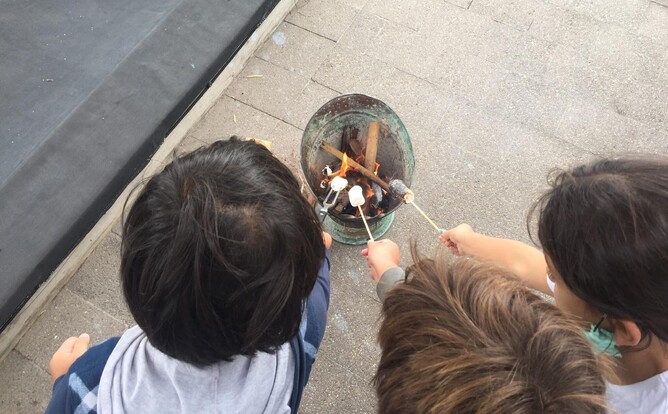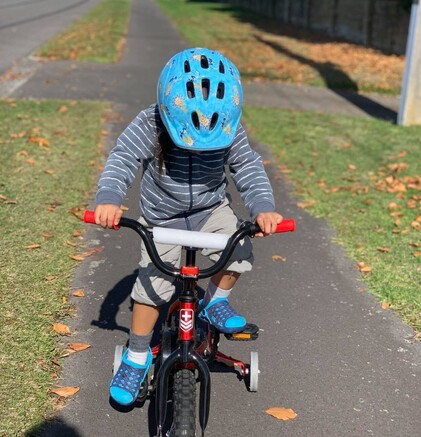During lockdown, many families adjusted to new routines with children home full-time. Multi-tasking took on a new meaning, the work-life balance was thrown off-kilter, and the extra family time was cherished.
But for the 6000+ Kiwi kids in foster care who have already had their life uprooted, the lockdown’s rules brought new fears to the forefront, wondering where they would go next and when they could see their families again.
In foster care due to serious neglect and/or abuse, often separated from their siblings, and sometimes changing families up to three times per year, it is no wonder these children would be on high alert. One charity providing some stability for these vulnerable children is Homes of Hope.
Homes of Hope protect, care for and assist the healing recovery of children in our community who have been traumatised due to significant and sustained abuse and neglect.
By providing homes in which children can stay together as brothers and sisters for as long as they need to, with consistent wrap-around care and therapeutic support assisting their road to recovery, children are supported to reach their full potential.
Preparing each child to take their place in society as confident, competent, contributing and fulfilled adults is a job that requires a significant investment in time, support, love and care. For their team of House Parents, Therapists, caregivers, Social Workers and volunteers, that investment is invaluable.
Over the past 18 years, they have nurtured 250 broken young lives towards becoming happy, confident, well-adjusted people who go on to contribute to the world in meaningful ways.
From young adults who were once children in their care, now caregivers for the charity, to children who have become senior leaders in their school, Homes of Hope is a testament that effective interventions can produce long-term positive outcomes.
While the charity can house up to 12 children at a time, COVID-19 put a pause on their ability to take in new tamariki. For the nine children currently in their care, the lockdown also brought with it some anxieties. But with the support of the Homes of Hope team, they made the most of the experience.
Homes of Hope Social Worker Rosalyn Howard says maintaining a routine throughout lockdown, balanced with some fun and breaks, was important for their tamariki.
“Children from difficult backgrounds flourish in routine and structure; the predictability helps them feel safe.
“Generally the tamariki did an hour or two of schoolwork a day, with the odd day off to experience the break isolation gave us. The routine of the day, such as lunch, dinner, showers, and tamariki helping with the running of the home, continued the entire way through isolation.”
With the rest of their days were spent riding bikes, playing, baking, doing arts and crafts, planting veggies and watching movies, Rosalyn says the break from life’s busyness allowed the kids to enjoy being kids.
“They have all done so well in this unpredictable time, showing real resilience and strength. For us, it was a reminder that for our tamariki to heal, they need space and time. So we need to give them the opportunity to do this by not making their lives too busy with a bunch of after-school activities etc.”
Now at Alert Level 2, life is almost back to normal. The children are back at school and kohanga, mentoring sessions have resumed, and the only thing on hold, for now, is swimming. But Rosalyn says they are in no rush to get the children into a busy schedule with the newfound freedom.
“We are going to keep their lives as quiet as we can while they adjust back into school life with their peers. We feel this is adjustment enough for them as daily transitions and relationships with others are a little tougher for tamariki from difficult backgrounds. We also feel that minimising their contact with others is the best way we can keep them safe in this current world environment.”
With the children home-based 24/7 during the lockdown, expenses added up quickly. Groceries were no longer being donated, cleaners who usually gave their time could no longer help out, and House Parents and caregivers were working additional hours.
The charity sought funding through the Rapid Response Fund to assist with the additional operating costs and urgent purchases required for the six weeks following lockdown. With $4,485 in funding approved by local funders TECT, Acorn Foundation, BayTrust and Tauranga City Council, Homes of Hope purchased cleaning supplies, food, stationery and Chromebooks for schooling.
Acorn Foundation General Manager Lori Luke says Homes of Hope offers children the chance to have the life they deserve.
“The rate of child abuse and neglect in our country is horrific, and these problems are prevalent right here in the Western Bay of Plenty. For children coming from these hard places into foster care, having the chance to stay with their siblings, and be in one stable place that offers wrap-around support—it can truly be life-changing.
“We are so fortunate to have Homes of Hope in our region and are proud to support their work both with this Rapid Response funding and through our Acorn Foundation Homes of Hope Community Group Fund.
“Generous people throughout our community give to this fund. Their donations are pooled and invested in perpetuity, and the investment income is distributed– meaning their single gift can grow and continue to support Homes of Hope annually, forever.”
To learn more about Homes of Hope, visit www.homesofhope.org.nz. To make a donation to the Acorn Foundation Homes of Hope Community Group Fund, visit https://www.acornfoundation.org.nz/ways-to-give/donate.





